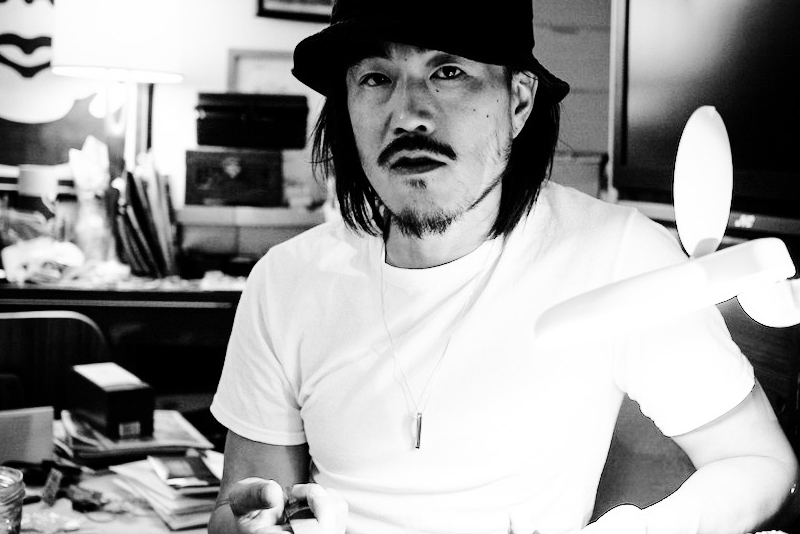Spencer Fujimoto is a renowned skateboarder turned entrepreneur. Instead of taking the normal route of making hard goods or apparel when he started his brand, Fuj decided to take a different approach. He picked up a craft that he learned in high school, making jewelry, and applied it to the culture that he grew up in. His brand, El Señor New York, is now three years old. It has domestic accounts, international distribution, and a huge team of skaters, musicians, and other people tied into Spencer’s diverse culture. As skateboarding’s first and only jewelry brand grows into a force to be reckoned with, we decided it was time to sit down with Spencer and have a candid conversation about how it started, and where it’s going.
How did you get into making jewelry, and what was the original process?
I started in high school. I took a class at my stepfather’s school—he taught at a college. The first step was taking a saw and a piece of sheet metal, and drawing something on it. Then they teach you how to solder things together, use the torches, and the flux. That was pretty much the basics. I did a couple of things, a couple of castings—then the course was over and pro skateboarding happened.
Did you still make jewelry at all while you were skating?
Nothing, I totally put it down. I didn’t even really think about it much. Every now and then, I thought about something that I kind of wanted. It was one of those “I want my pro-skate medallion” kind of things. They weren’t things that I wanted to sell, they were more personal pieces—and things for the crew. The graffiti crew, or skate crew, just shit like that.
When did you pick it back up, and what made you decide to pick it back up?
It was when I decided I wanted to make a company. I just felt like it was time—I had the name, I had the website, it was ready to go. I needed to figure out what I wanted to do. We started out doing leather jackets. Me and my partner at the time wanted to do leathers. We thought that was cool, but it just took up too much damn space, and it was way too expensive. I explained to my partner that I could make jewelry, and that was something that I always wanted to do, maybe we could do that. He kind of shot it down, so then I told him that I think we need to make shirts. I said, “We need to make T-shirts ASAP because we have to start promoing.” He shot that down immediately. He said, “Nah, I didn’t imagine this place full of T-shirts. I don’t want boxes of T-shirts in this place!” He had a really big and nice work studio. I realized that he wasn’t getting it, so I had to split from him and move on to my own thing. So, I moved it out of his space and brought it to my apartment. Jewelry fits in a shoe box, it’s very small. It’s also affordable to produce in smaller quantities. It’s almost geared for the “one of” a kind of industry. That’s how it spawned from leather jackets into jewelry.
So, do you hand cut everything? Originally, weren’t you casting the stuff yourself?
Originally, I was sculpting the stuff myself. I would do the was sculpture with pretty crude tools. I carved it out with dental tools—that’s how they taught me at school. I moved from doing it by had to working with CAD designers. Now, I have a few different guys that I work with that handle most of the designs, because it takes a really long time. I can’t wait to do some hand stuff again, there’s a couple of pieces that I have on the slate that I can do by hand.
What’s your favorite piece that you’ve done so far?
I love each one, and each one is a labor of love. Each one is a problem, but you work out problems and they make you stronger, and more experienced. But, my favorite piece is probably the Hosoi piece—the Christ Air piece. I carved that one by hand. I did that one during hurricane Sandy. The lights were out, so I could only work on it during the day—which kind of helps, because sometimes you get into the groove and it becomes five in the morning. That only took a couple of days, and it was all during the day during hurricane Sandy. It was kind of a stressful time, but working on the piece made it easier to get through the days.
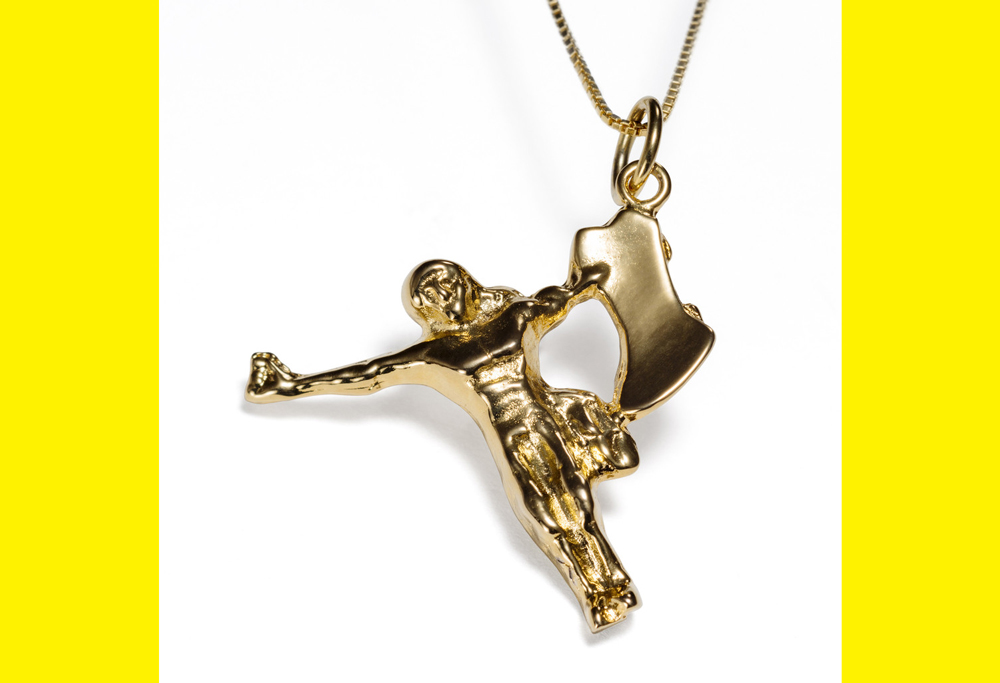
So from the first year until now, what’s been the evolution of the brand?
It’s cool to see the archive lined up. The quality of the pieces is moving forward. The concepts are moving forward. It’s all skate lifestyle oriented, and more—which is the next evolution of El Señor. Right now we’re just a jewelry company, so we’re going to start doing some other things with other people.
So you’re working with a lot of people that crossover and do other things. Is that by design, or is that happening organically?
Well, Black Dave was our first rider. That was organic. He was the closest, illest dude that I knew. He was the full package. The fact that he raps too, I thought that his style embraced the company. Dave was our first pick. Yelawolf was number five. I didn’t really know he skated until he showed up at Da Playground and did that part. It was crazy, he did that in like an hour or two. I was totally impressed. You can tell that at one time, Wolf definitely put a lot of work into skateboarding—he’s really good.
How do you go about getting all of these people on the team?
It was all organic, it still is. The core team is just homies—friends that I grew up with, new friends that are around that I see. Those are the people that I reached out to first, and that reached out to me first. Then it just kind of grew, and it progressed—friends of friends, and the roots just grew. Sometimes there’s people that we want that we really go after, sometimes it works out and sometimes it doesn’t.
What’s the response been like to the brand? What do people tell you when they see your stuff?
Well, from skateboarders, ’cause that’s usually who I’m mostly around, usually the first response is, “Oh, you make jewelry. I don’t wear jewelry.” Then they look at the piece and they go, “Ah man, I gotta have that.” That’s usually the typical response. That’s kind of one of our mottos—we make things for people that they didn’t necessarily know that they wanted. A lot of dudes don’t wear jewelry. They don’t wear rings, they don’t wear necklaces. The things that we make are supposed to mean something to a certain lane of people. It speaks to skateboarders. We want to give the shops something to keep the girls in the store, and give them something to look at. When a girl goes into the store with a dude, they’re usually just trying to get out of there as soon as possible. With the shiny stuff in the case, that gives them something to look at. Plus, getting a skateboard for Christmas as a skateboarder—that’s not really a great present. It’s like getting a pack of boxer shorts or a pack of socks. It’s gonna get used, but it might not be appreciated. So our stuff is for dudes, but it’s also for girls to buy for their dudes.
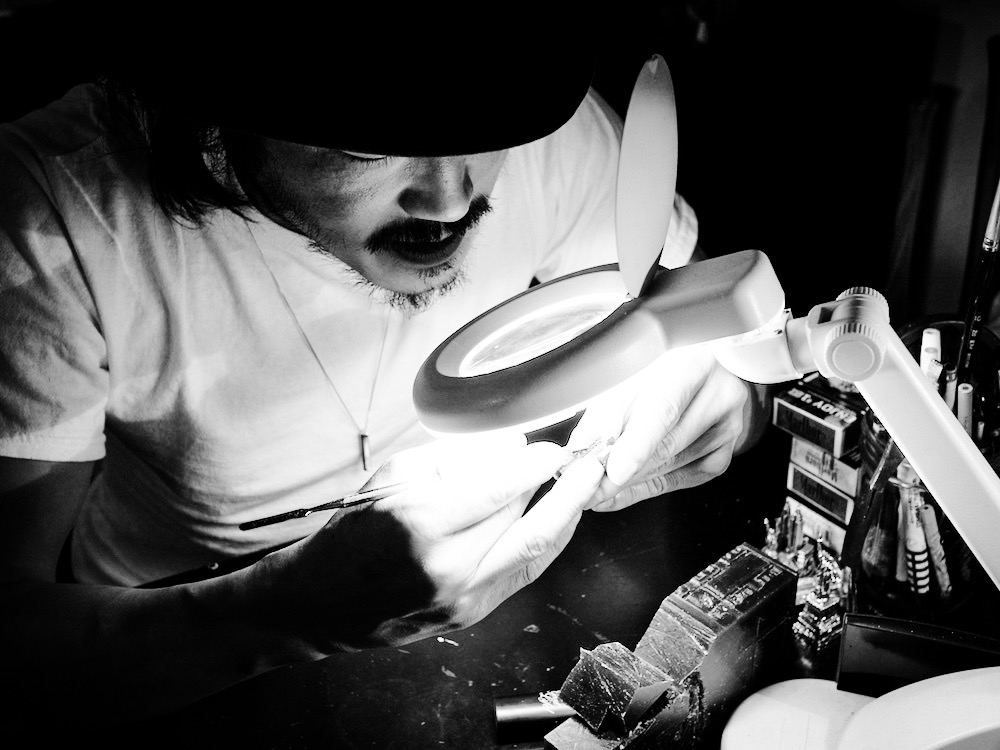
It’s a giftable thing.
It’s the perfect present purchase in the skate shop, because the dude is going to love it. It’s something that he’d never buy for himself, he doesn’t even know that he wants it yet.
It’s not blown out yet.
It’s not blown out—it’s not everywhere yet. He probably hasn’t even really seen it yet, but then when he does, he thinks, “I kind of want one of those things.”
We’ve talked about the process of actually making the pieces, but on a creative level, where do your ideas come from?
Wow, the list started out during the first month, and I’m still kind of trying to work on that list. Things go to the top, things go to the bottom, some things get scratched off. Most of the list stays, and things get added to it. It just gets bigger and bigger, and most of the time things get moved to the top. There’s things that need to get made because they tell a story that we’re going with. We always try to run with a theme, even if it’s a couple of themes—it’s seasonal, but the seasons tie in together. For example, we have the Ripper ring and now it’s the Skull and Sword. That’s kind of moving backwards, but it’s the way it has to come out out. Because the Ripper is….
More recognizable.
Right, and it’s more friendly. That was the whole thing about the Skull and Sword. It was kind of harsh, and it just seemed like it was about all this and that. But, that’s what I kind of like about it. That’s another thing about the crossover piece, it’s our interpretation of it as well. A two-dimensional drawing is kind of difficult to turn into a three-dimensional thing and make it work as a ring so it won’t get caught on your clothes, jab your eye out, or something like that. For me, I feel like it’s kind of rock and roll or biker. So, for other people, they don’t necessarily need to know who Ray Bones is or what Powell Peralta is or anything like that.
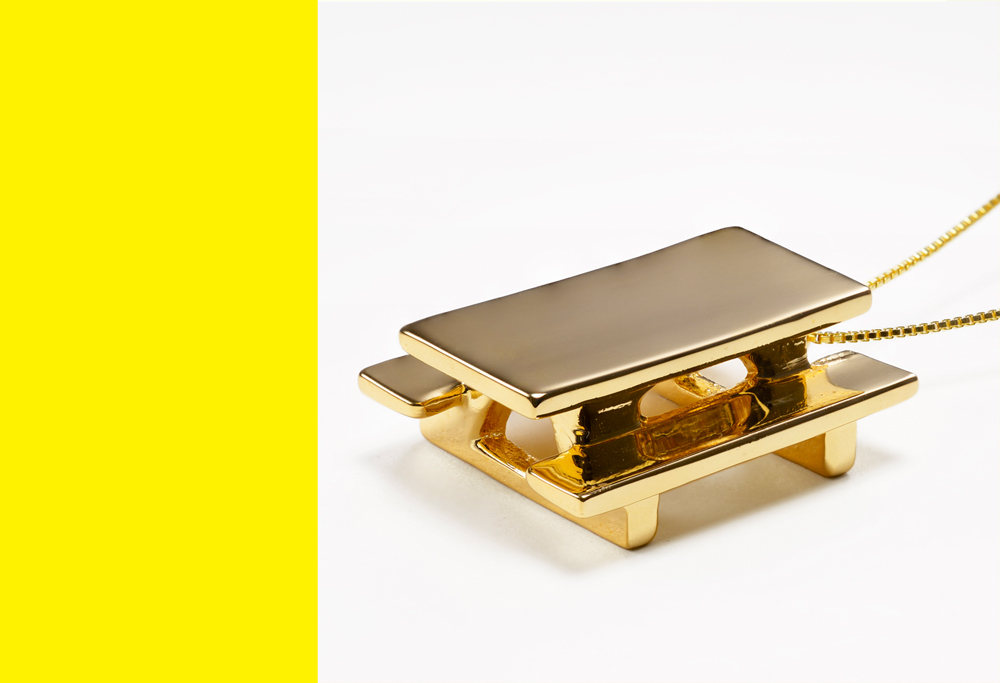
Where do you see yourself taking El Señor in the future? I’m sure you have a vision of where it will evolve to.
One of our mottos is skateboardings first and only jewelry companies. We’re dedicated to the culture and heritage of skateboarding. With that, we’re really trying to transcend skateboarding—I mean skateboarding is life, and that’s really all I know, but we want to transcend that and be about the culture and heritage of life. We want to make stuff that is meaningful for everyone, regardless of what lane you’re in. Skateboarders have a lot of friends, and we do a lot of different things. Ryan Hickey, he’s a professional fisherman. Joey Pepper is a carpenter. Stefan Janoski is a sculptor. There’s so many skateboarders that do other things, and so many things that we appreciate as skateboarders, but the art that we create is not always necessarily for skateboarding. El Señor can explore all of those different kinds of lanes. It just all has to make sense, and be cool. We want to walk that fine line of staying tasteful, while appealing to different crowds.
You’re distributing it independently right now, correct?
Domestically, yes. We handle all of our domestic distribution. We got through Nutty Rice, they’re a showroom that handle a lot of accounts. Overseas, we have Hope Distribution—they do a lot of big ones in Sweden. We’ve got Big Wing in Japan—they do a lot of the cool brands out of New York like Traffic and Theories of Atlantis. That’s what we got right now. We’re working on Australia. But we’ve got to take our time and build it up. It’s all supply and demand. The demand is slightly high, and the supply is slightly low. It just takes time to make, and it takes money to produce. It’s good though, because it’s independent, we want to stay independent and let it grow as fast as it can.
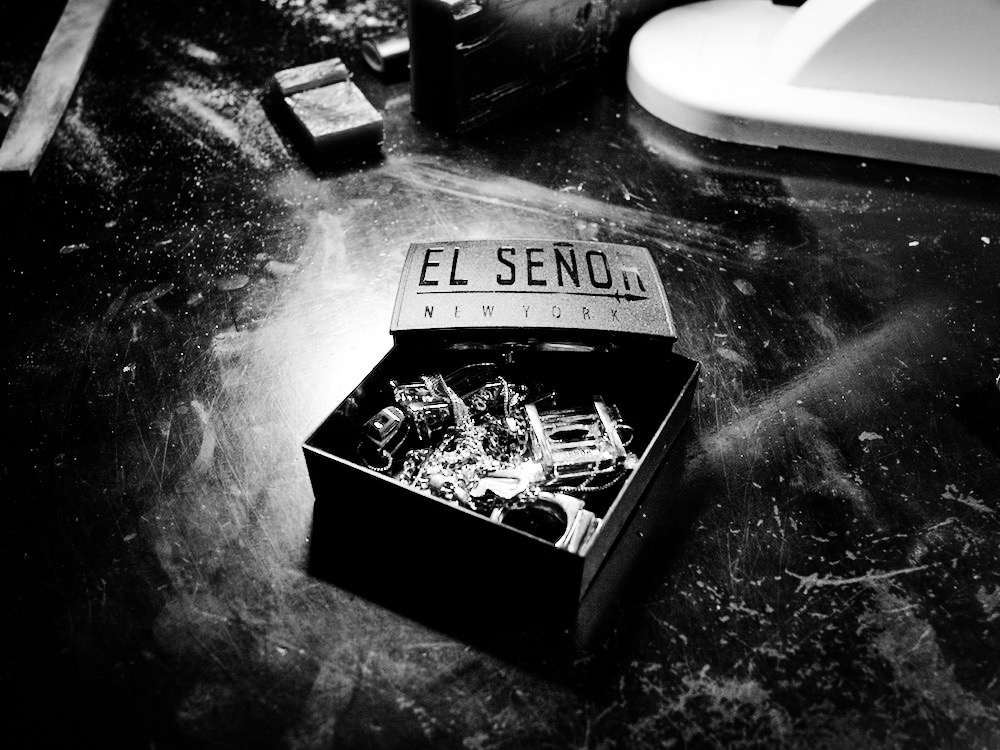
What’s it like balancing doing the creative side and the business side?
It sucks. Balance, it’s not like a teeter totter—it’s just juggling. You’ve got to separate, and compartmentalize your life—or at least try. If you don’t, it just all blends together, and it’s super hard. When I was working from home, I would be sculpting at the kitchen table, looking at crap I gotta clean up, plus stuff that I gotta send out, there’s dishes to do, there’s a girl I’ve gotta tend to, and a kid I’ve gotta tend to. On top of all of that, I would have to finish this work. Now it’s separate, I have an office. All of the work stuff stays at the office, and things are more compartmentalized. That stuff stays over there, and home stays more like home. It’s hard trying to design things and then trying to sell them. That’s why having a sales team is so helpful. I still have to deal with all of the accounts, and be in communication with them—that’s a relationship. It’s just like with a girl, you gotta tell them what you need and tell them what you want. No one is a mind reader, we’re all human beings, and we all make mistakes. We have to learn from it, and grow from it. That’s what helps it become bigger and better, and that’s what it’s about—and that’s what skateboarding is about. It’s about improving yourself, bettering yourself, and challenging yourself.

